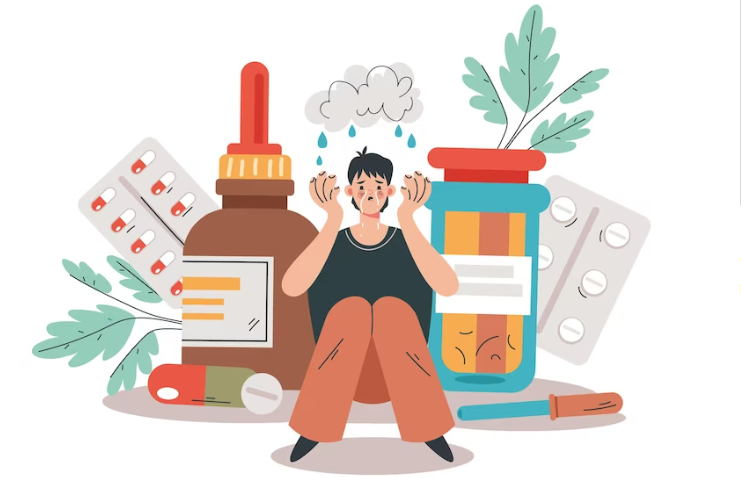Mental health conditions affect millions of people worldwide, impacting their daily lives, relationships, and overall well-being. Fortunately, advances in medical science have led to the development of various mental health medications designed to alleviate symptoms and improve the quality of life for individuals dealing with mental health disorders. In this blog, we will delve into the realm of mental health medications, exploring the different types, their mechanisms, and how they play a crucial role in mental health treatment.

1. Antidepressants:
Antidepressants are medications primarily used to treat depression, but they also effectively address anxiety disorders, panic disorders, and certain types of chronic pain. They work by balancing chemicals in the brain, such as serotonin and norepinephrine, which play a significant role in regulating mood and emotions. Common types of antidepressants include selective serotonin reuptake inhibitors (SSRIs), serotonin and norepinephrine reuptake inhibitors (SNRIs), and tricyclic antidepressants.
2. Anti-Anxiety Medications:
Anti-anxiety medications, also known as anxiolytics, are prescribed to manage symptoms of anxiety disorders, including generalized anxiety disorder (GAD), social anxiety disorder, and panic disorder. These medications, such as benzodiazepines and buspirone, work by calming the central nervous system, promoting relaxation and reducing feelings of fear and worry.
3. Mood Stabilizers:
Mood stabilizers are primarily used to manage bipolar disorder, a condition characterized by extreme mood swings between mania and depression. These medications help stabilize mood, prevent episodes of mania or hypomania, and reduce the risk of depressive episodes. Common mood stabilizers include lithium, anticonvulsants, and certain atypical antipsychotics.
4. Antipsychotic Medications:
Antipsychotic medications are prescribed to treat conditions like schizophrenia, bipolar disorder, and severe agitation or aggressive behavior. They work by blocking specific neurotransmitters in the brain, helping to alleviate symptoms like hallucinations, delusions, and disorganized thinking. Antipsychotics can be categorized into typical (first-generation) and atypical (second-generation) antipsychotics.
5. Stimulants:
Stimulant medications are commonly prescribed for attention-deficit hyperactivity disorder (ADHD) to improve focus, attention, and impulse control. They work by increasing the levels of certain chemicals, like dopamine, in the brain. While stimulants are effective for managing ADHD, they should be taken under medical supervision due to their potential for abuse.
6. Holistic Approaches:
In addition to medications, holistic approaches such as therapy, counseling, and lifestyle changes are integral parts of mental health treatment. These approaches often complement medication therapy, providing individuals with coping skills, stress management techniques, and emotional support.
It’s essential to note that mental health medications should be prescribed and monitored by qualified healthcare professionals. Proper dosage, potential side effects, and interactions with other medications are crucial considerations in mental health treatment. Individuals should always consult their healthcare provider to determine the most suitable medication and treatment plan tailored to their specific needs.
In conclusion, mental health medications play a pivotal role in managing various mental health conditions, offering relief and enabling individuals to lead fulfilling lives. When combined with therapy and a supportive environment, these medications contribute significantly to the overall well-being of individuals dealing with mental health challenges. Remember, seeking help from healthcare professionals is the first step toward a brighter, healthier future.
